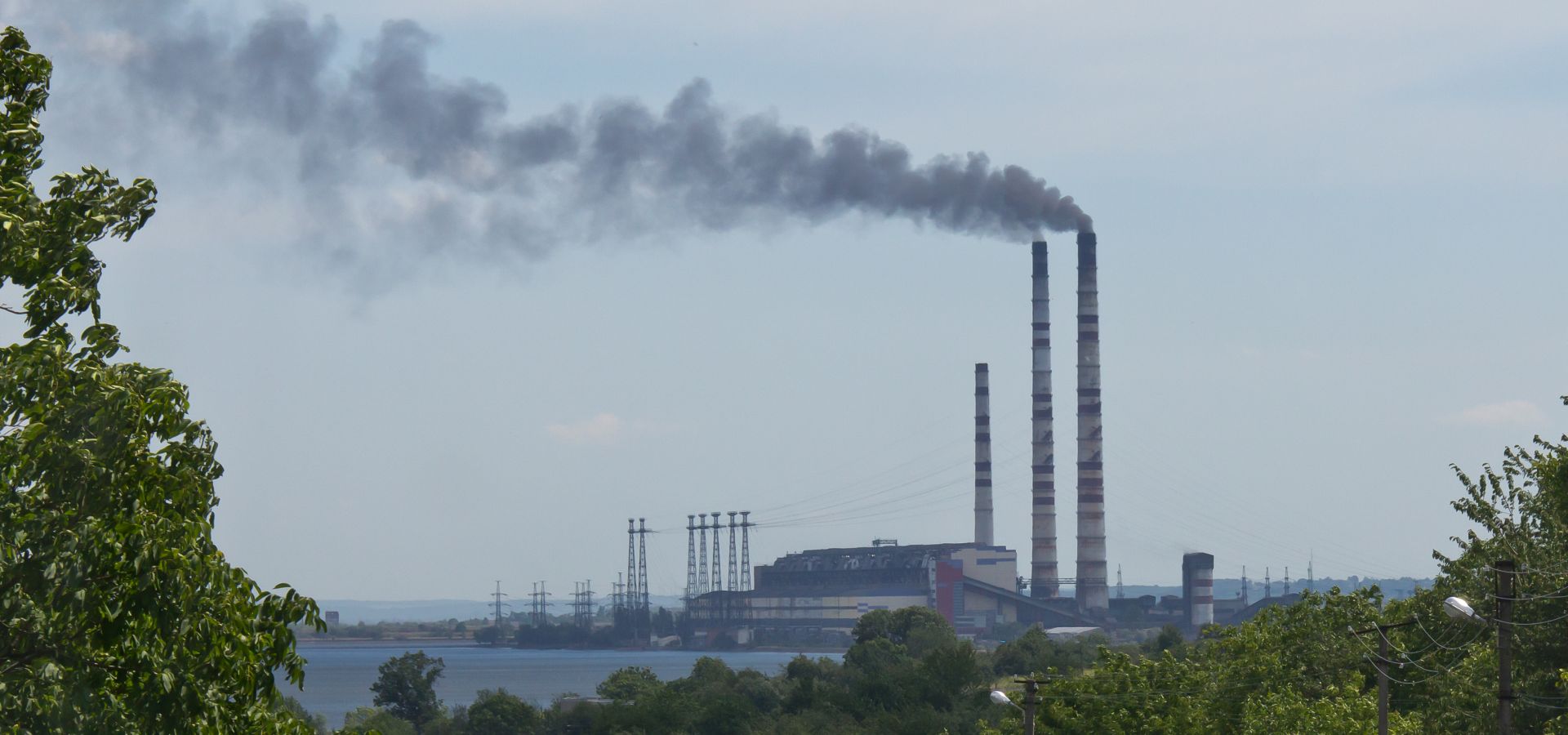Ukraine has been a part of the EU Energy Community since 2011, but recently the President vetoed two draft laws to protect the environment and citizen health. Does the country risk losing the trust of its European partners? Anastasiya Yermakova takes a look.

Air pollution in the Ukraine is both dangerous and contentious (Raimond Spekking, edited, CC BY-SA 4.0)
On February 1, 2011, Ukraine formally joined the Treaty establishing Energy Community. Having become a fully-fledged Energy Community member, Ukraine committed to implement a whole range of the EU community law to align its legislation in the energy sector with the European legal and regulatory framework.
The large share of obligations provided by the Treaty and decisions of the Energy Community Ministerial Council should have been introduced in the sector of environment already some time ago. In particular, Ukraine has committed to adopt laws “On Environmental Impact Assessment” and “On Strategic Environmental Assessment,” which later on became a part of the commitments in the EU-Ukraine Association Agreement.
The draft law “On Environmental Impact Assessment” (EIA) provides for the implementation of the European approach for assessing the environmental impact of potentially harmful projects, with the objective to prevent damage to life and health of the Ukrainians and environmental degradation in general.
The draft law “On Strategic Environmental Assessment” (SEA) provides for the creation of a mechanism of strategic environmental assessment to ensure the protection of the environment when making long-term strategic decisions.
Recent developments
A serious public discussion has been going on around these draft laws for the last few years. In the past 18 months, the draft law “On Environmental Impact Assessment” has been put to vote on the plenary sessions four times. Eventually in October 2016, the Parliament adopted both laws, each with support of 259 MPs in favor (passing the required minimum of 226 votes).
This is very relevant as Ukraine is the only European country with no procedure yet for a full environmental impact assessment. With the enactment of the Law “On Regulation of Urban Development” in 2011, projects such as nuclear power plants could be developed without taking into account the views of the relevant ministry (Ministry of Environment and Natural Resources) and the public. In addition, according to a new statistic released in the Guardian, air pollution kills 120 of every 100,000 Ukrainians. The adoption of the above described draft laws would give an opportunity to remedy this situation.
However, the President of Ukraine Petro Poroshenko vetoed both laws and sent them back to the Parliament for revision. His proposals related in particular to economic and environmental impact assessments, security and defense concerns as well as inclusion of public consultations.
What does the veto mean for the European integration?
Given the lengthy debates and discussions that preceded the adoption of these laws, the President’s veto received mixed reactions. Some stakeholders have agreed with the fact that the laws actually need improvement. In particular, the Energy Reforms coalition said that a number of provisions of the legislation are in fact ambiguous and need clarification.
However, other stakeholders (like the International charitable organization “Environment-People-Law”) criticized that the President made this decision without any prior public discussions, despite a large number of stakeholder discussions on the draft laws including round tables, committee hearings and expert meetings.
They are not the only ones to comment on this latest obstacle to the law’s adoption. In particular, the EU’s delegation to Ukraine said that the veto on the SEA law “isn’t good news on the way to closer integration with Ukraine.” This is particularly sensitive as the adoption of the law is part of Ukraine’s obligations under the Espoo Convention (Convention on Environmental Impact Assessment in a Transboundary Context) and part of the obligations under the EU-Ukraine Association Agreement and the Treaty establishing Energy Community. The EU urged Ukraine to adopt the laws as soon as possible. Moreover, the Energy Community Secretariat is preparing to open a case against Ukraine (under the dispute settlement procedure).
Considering that most of the President’s proposals are outlined rather generally, a general stakeholder consultation could help to finalize the laws properly. However, Ukraine cannot delay this process, as there is a risk that our country will freeze the status quo in the area of environmental protection. In particular, investors will continue to develop objects with potential danger to the environment and people’s health, using gaps in the Ukrainian legislation.
Environmental issues may not be perceived as a “terrible” challenge or obstacle for doing business. Especially given the fact that the latest versions of both laws were agreed upon by all stakeholders − the executive authorities, the public and business interests. Moreover, the draft laws were approved by European investors, who said they are ready to develop business in Ukraine on the condition that the European rules are applied on the Ukrainian energy market.
Being already significantly behind schedule regarding planned reforms, Ukraine should quickly approve the European environmental laws in order to not lose trust from the European partners. If not now, when then?
Anastasiya Yermakova works for the DiXi Group to promote reforms in the Ukranian energy sector within European projects. In addition she is the Deputy Editor in Chief of Ukrainian Energy website.